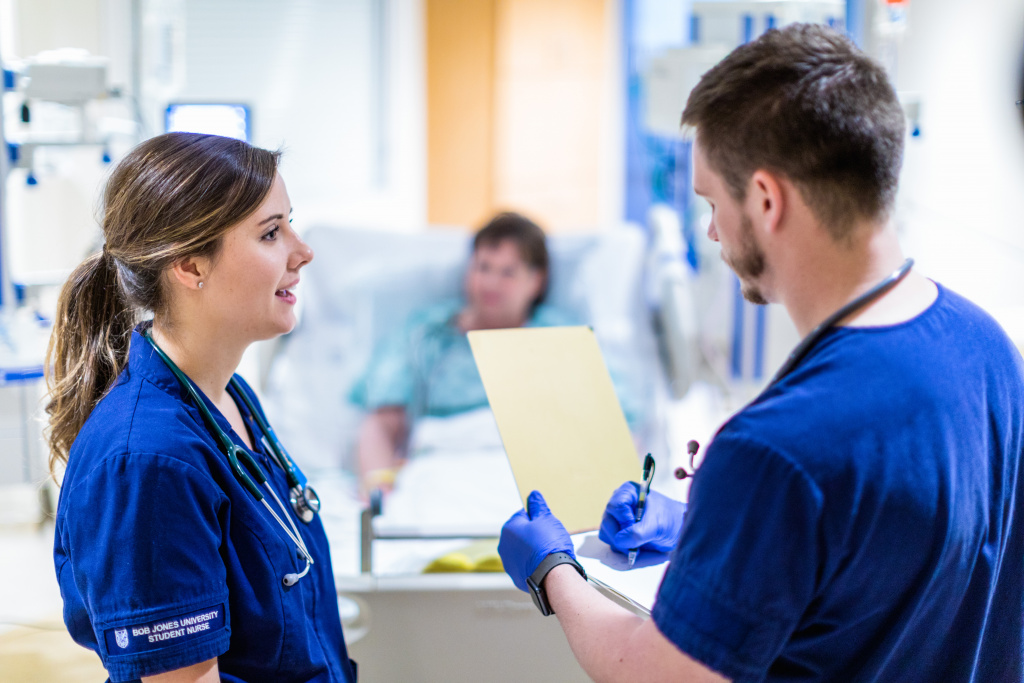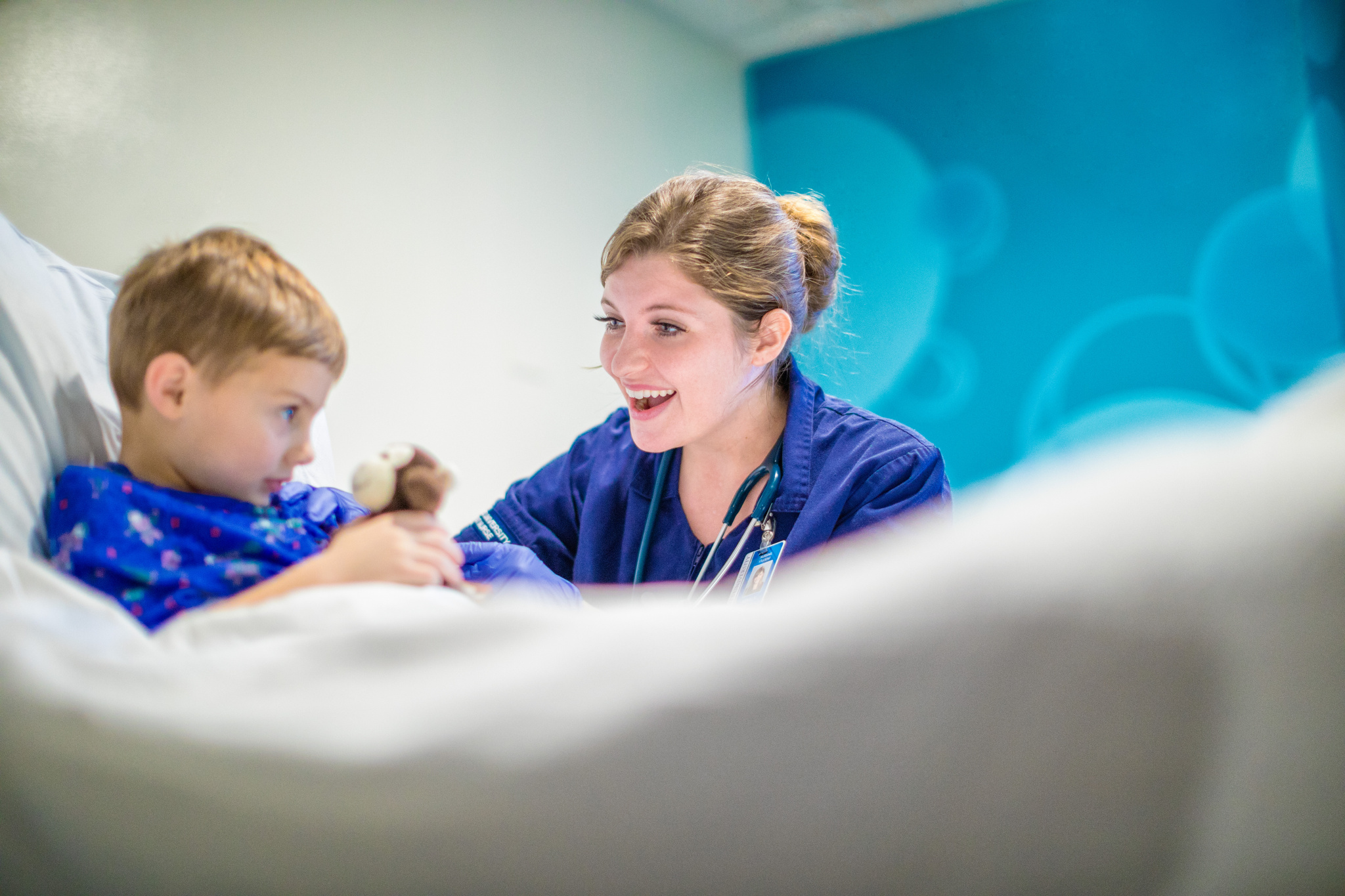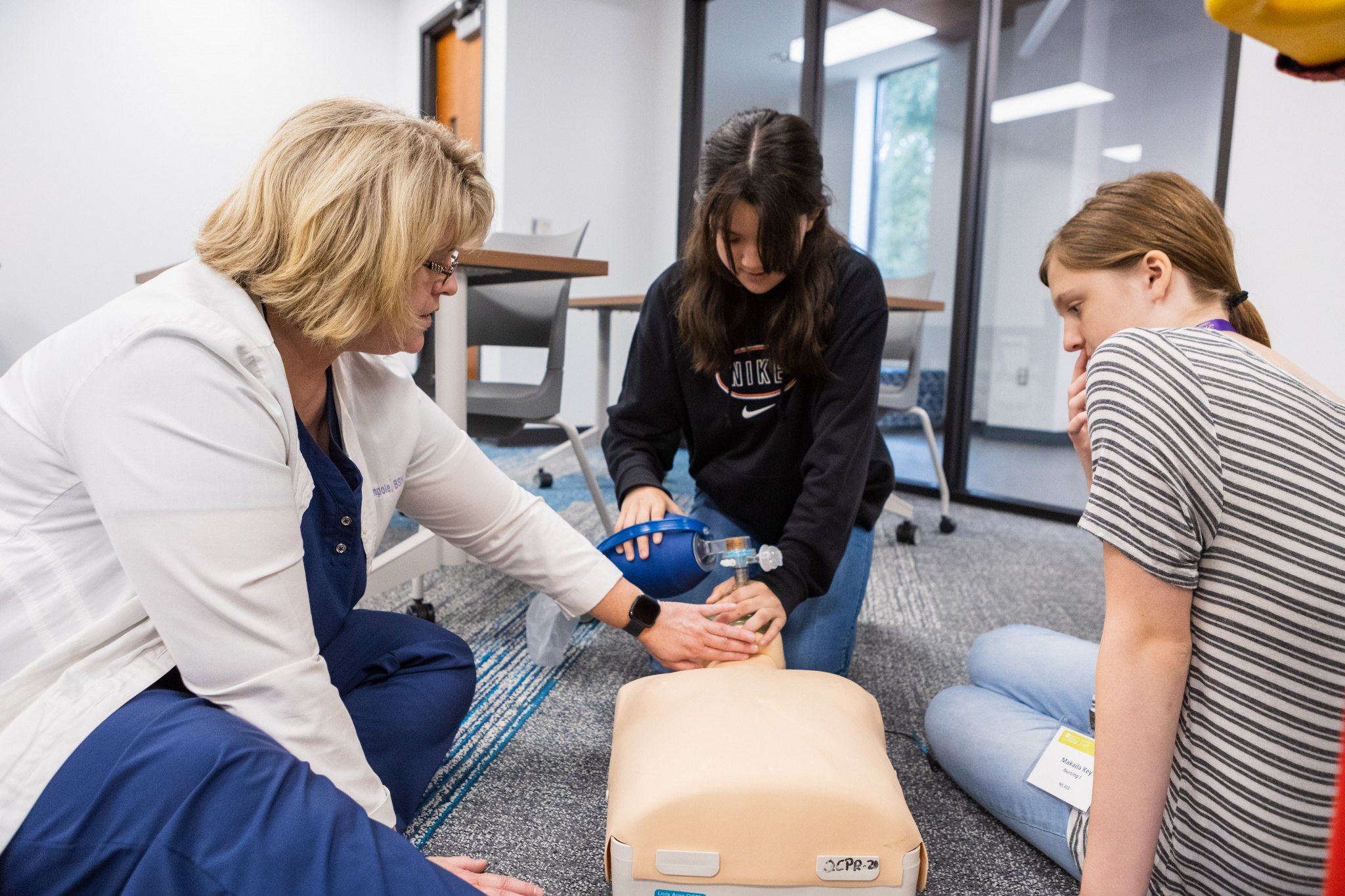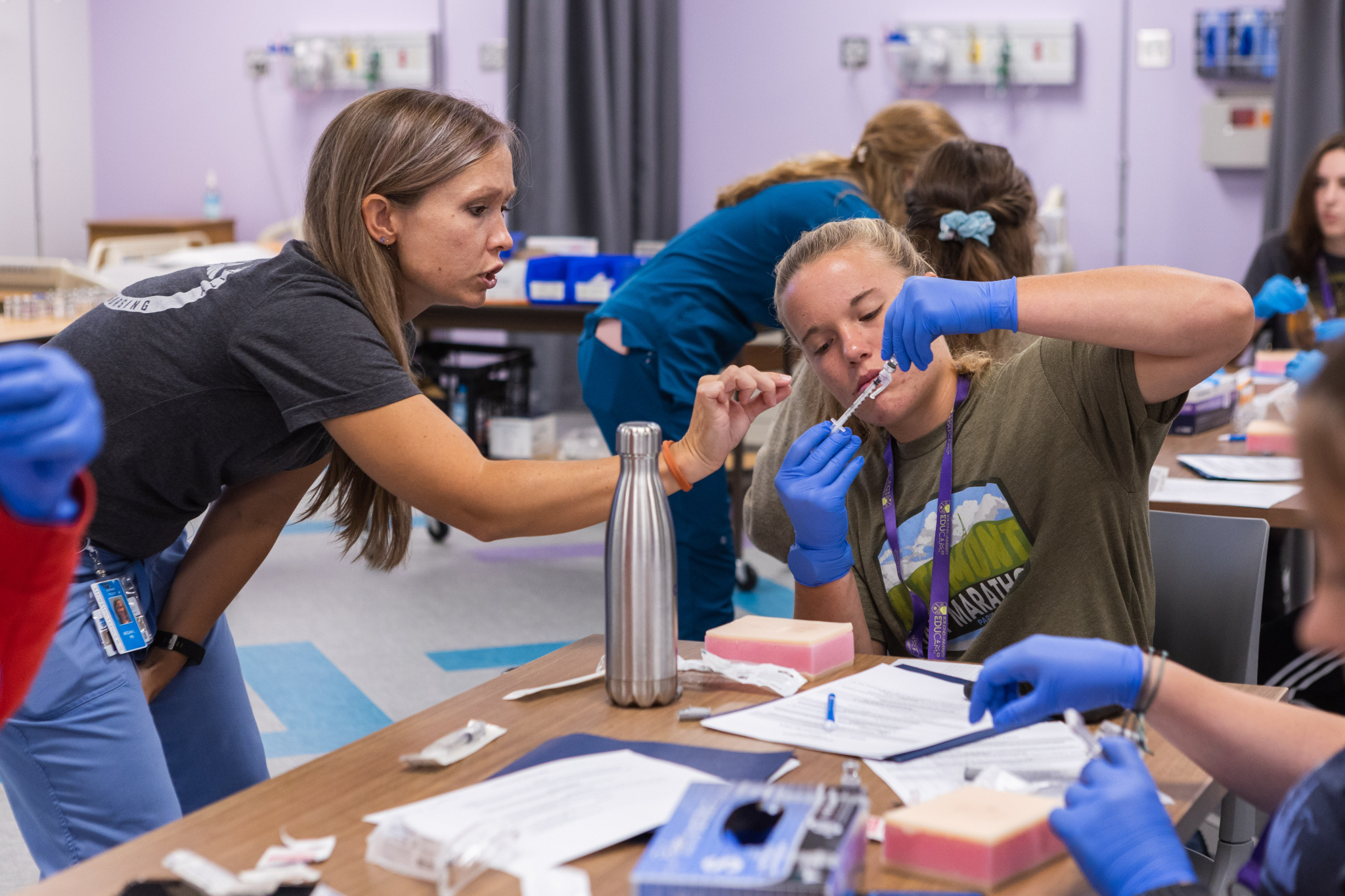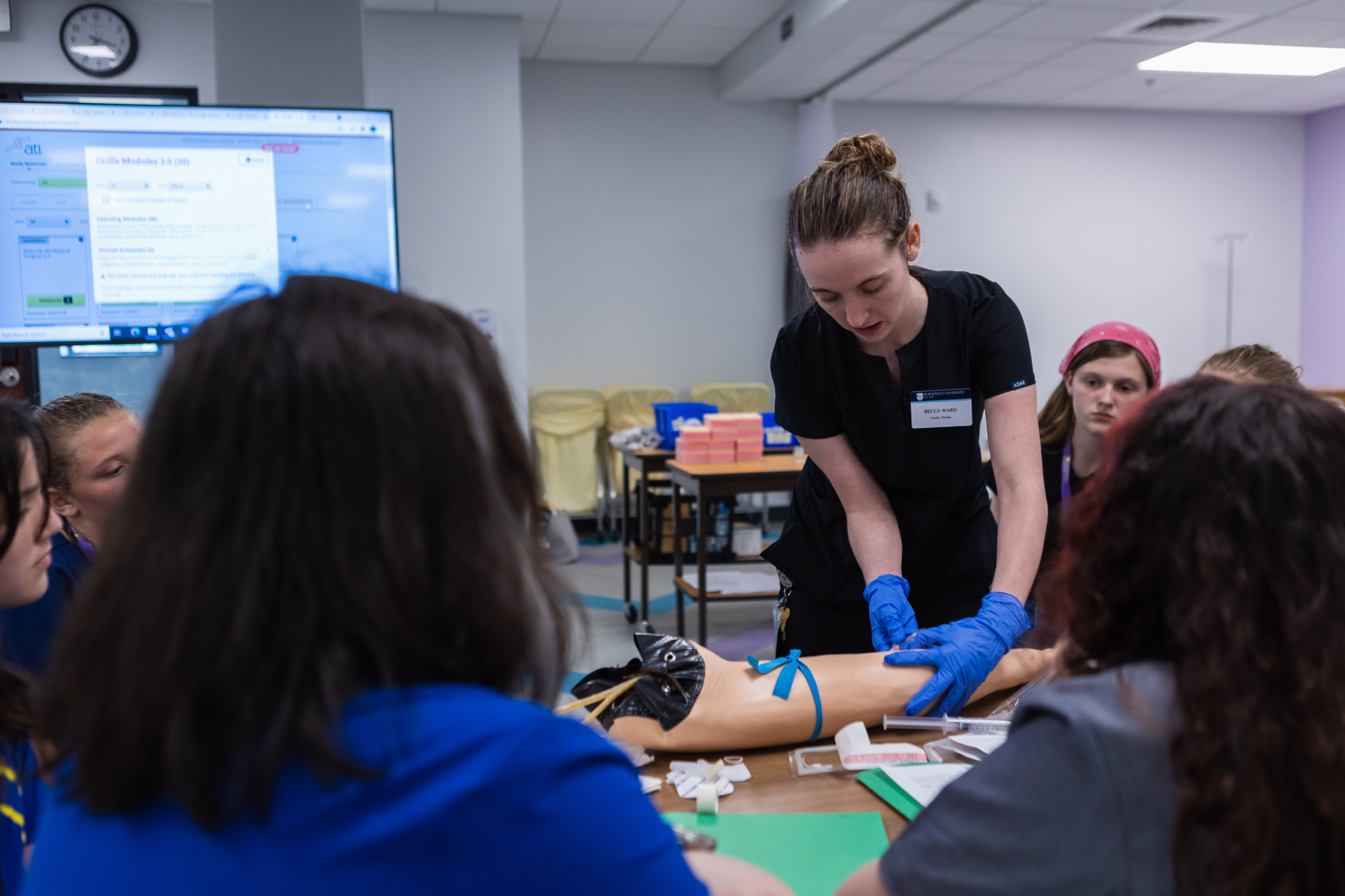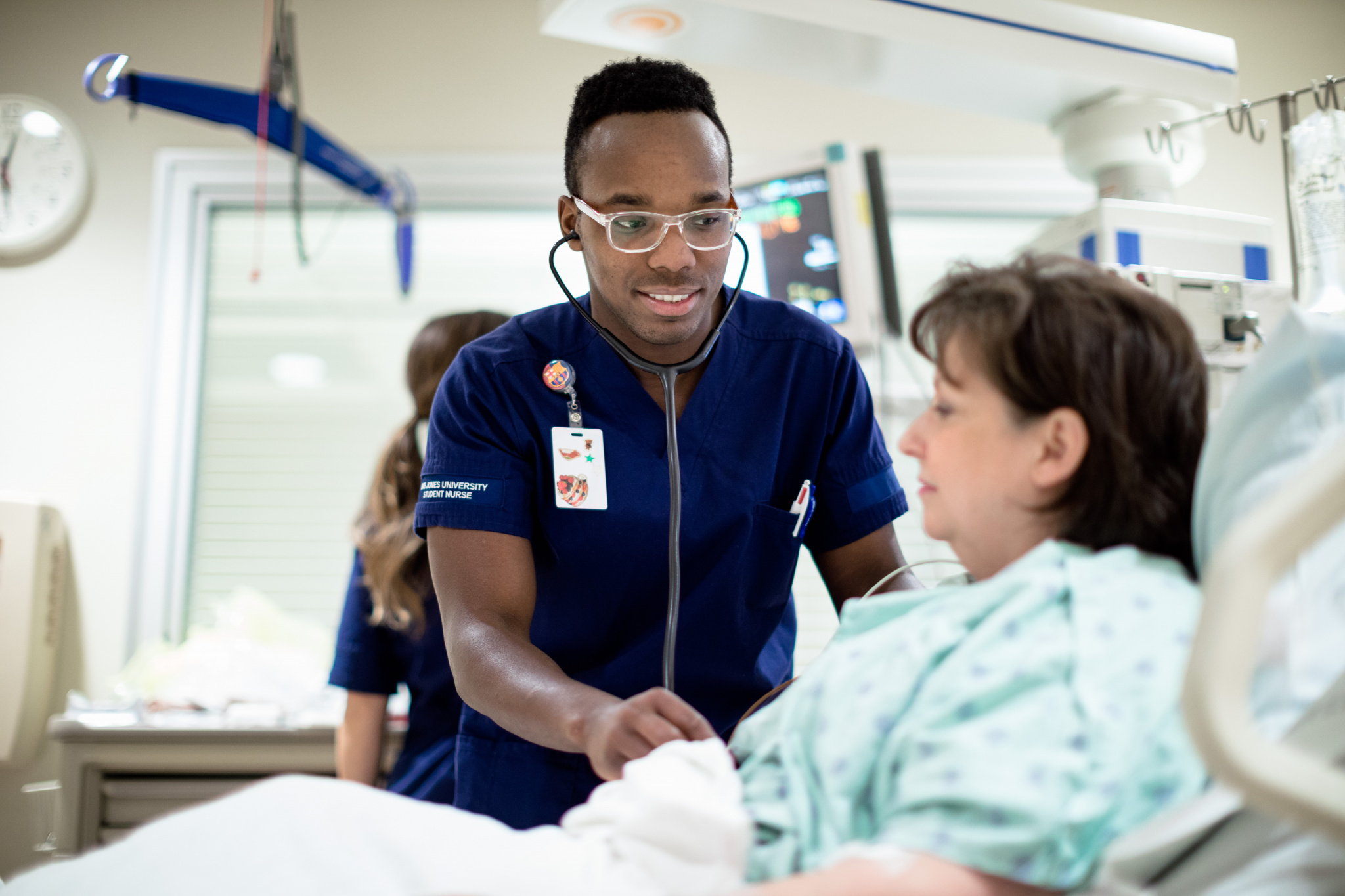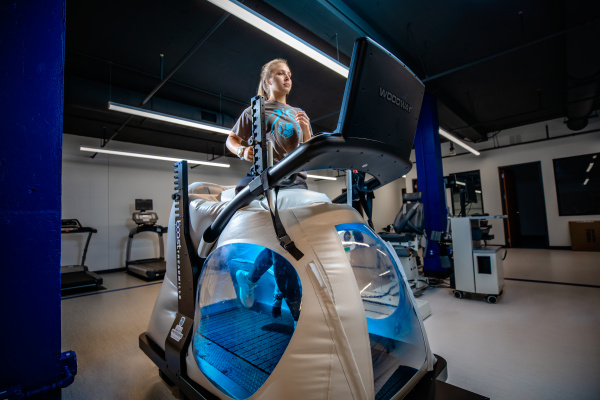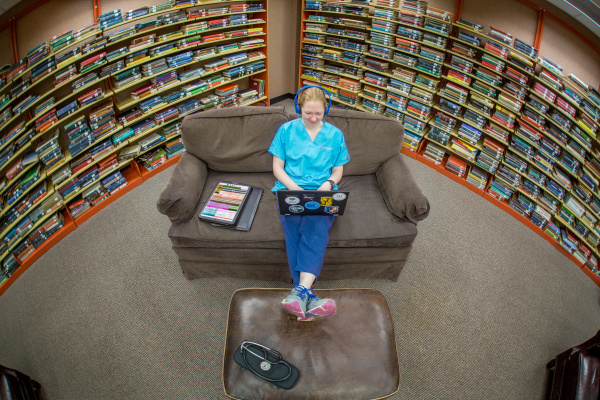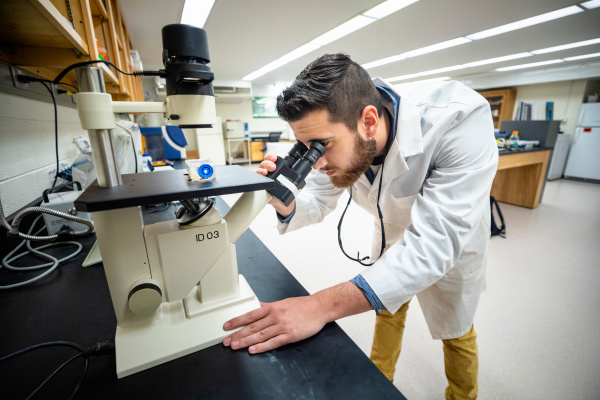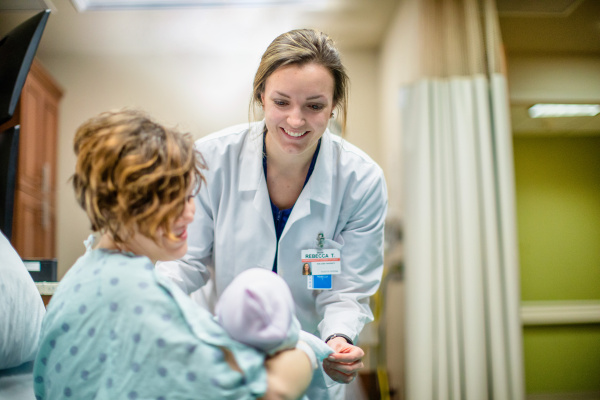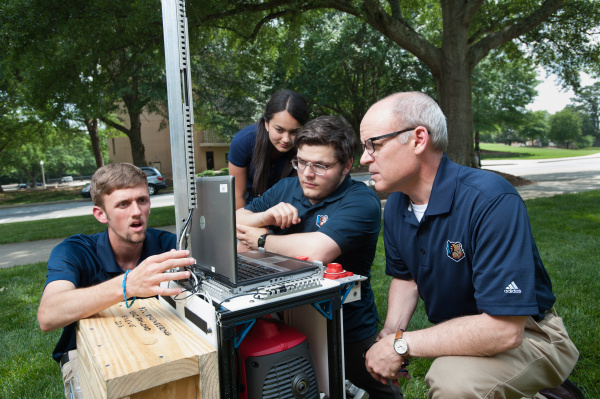The familiar whir of a siren echoes down the highway as an ambulance transports an injured person to the hospital, where they will receive medical aid from trained professionals.
Everyone who enters a hospital or health care facility is going through some level of personal crisis, and compassionate, Christian nurses make a meaningful difference in multiple ways. According to Megan Lanpher, chair of the Division of Nursing in BJU’s School of Health Professions, “our program provides instruction in nursing based on a biblical worldview. . . . We emphasize treatment of the patient’s physical, emotional and spiritual needs.”
Would I Be a Good Nurse?
The need for highly trained health care providers, especially Christian nursing professionals, is growing exponentially. Health care occupations are forecast to grow 19% by 2024, outpacing all other occupations, according to the U.S. Department of Labor.
The key unifying characteristic in every role is the skill and drive that it takes to be a nurse. Through long-term monitoring of patients’ behavior and knowledge-based expertise, nurses are best placed to take an all-encompassing view of a patient’s physical and mental wellbeing.
Courses in BJU’s nursing program are challenging and supplemented by hands-on labs in the state-of-the-art SHP facility, a three-year clinical program and community outreach. The immediate reward is you’ll be equipped with the skills and confidence to succeed in the evolving fields of health care. The BJU nursing program opens the door to many career opportunities; including nurse anesthesia, nurse practitioner, pediatrics, nurse leadership, travel nursing, emergency department, operating room, oncology, neonatal ICU and medical missions.
“Our nursing program has been in existence for 40 years and we have over 1,000 graduates,” said Lanpher. “It’s a program that has a great reputation in the community and it prepares the graduates for careers in health care.”
See Also: Nursing Program Earns CCNE Accreditation
How Do I Prepare?
Unlike other programs, admission into the nursing program requires passing three introductory classes and completing a test in the second semester of the freshman year. Certain ACT scores and a minimum GPA are also necessary. More information about the requirements can be found on the program page.
Lanpher recommends that high school students who are interested in nursing “should take an upper-level science course, like anatomy and physiology to see if they’re interested in how the human body works.” They can also complete a nurse’s aide certification course to learn skills and proper interaction with patients. A week at the immersive BJU nursing EDUcamp in the summer is another opportunity to get a closer look at the field and its opportunities.
What Projects Will I Have?
The nursing program gives students a wealth of experience through both simulation and real-life practice before graduation. Students learn manual clinical skills and shadow nurses throughout undergraduate study.
Sophomore Prototype Collaboration
After students have been accepted into the nursing program, they take Beginning Medical-Surgical Nursing their sophomore year. Part of this class includes a partnership project with engineering students. Lanpher describes the project as “(identifying) a problem or missing equipment that would help (nurses) in the hospital setting, help them with patient care, or would help the patients in the hospital setting.”
Clinicals
Clinical hours allow first-hand experience in a variety of specialties within the broader field of nursing. “We . . . require students to participate in clinical experiences for six semesters — most programs include clinical experiences in only four semesters,” said Lanpher. During these times you’ll be working in hospitals, doctor’s offices and other facilities.
Additionally, you’ll be able to apply the skills you’ve learned in the nursing labs. Lanpher explains that students will use “things like starting IVs . . . administering medications and assisting patients with daily activities.”
“The student will learn to exercise critical thinking and clinical decision-making by learning to observe the data, or the circumstances that (are) happening to their patient, analyze the data to determine what’s going on with the patient and then prioritize treatment options to help improve the patient’s situation.”
Senior Year Practicum
During senior year, nursing students complete two substantial requirements. First, “they engage in some community teaching through . . . a poster presentation to students at the charter school regarding a health and wellness topic,” explained Lanpher.
“And in the last semester of their senior year, they do participate in a practicum clinical experience where they work one-on-one with a nurse in the community and they work that nurse’s schedule.” This second experience, called transition to practice, mirrors the self-guided nature of student teaching while adding 180 clinical hours to the nurse’s resume.
Are There Unique Learning Spaces?
Classes and labs related to the nursing program are held in the recently renovated Mack Building. The nursing skills lab contains everything a patient’s hospital room includes. There are even adult and child mannequins to complete the experience.
The simulation lab is “equipped with four hospital rooms, where there are mannequins that can simulate breathing, heart rate, pulses,” said Lanpher. “The students will practice real-life situations caring for patients independently in simulation.” Faculty can speak through the mannequins as the voice to imitate a real encounter.
See Also: Explore the Nursing Labs
What Extracurriculars Can I Do?
The close-knit nursing program provides for student enrichment and growth.
UNA
The University Nursing Association allows nursing students to build community with one another while serving others. According to Lanpher, it “organizes 1-2 fundraiser events during the year for crisis pregnancy centers, children’s homes and overseas missionaries.”
Medical Missions Trips
Students have the opportunity to participate in medical missions trips during the summers. They can share the gospel with others and meet the needs of souls as they meet the needs of the body.
Volunteering
“They also volunteer at crisis pregnancy centers and other facilities where they can help people with physical needs and also share the hope we have in Christ,” said Lanpher. Students have also assisted in vaccine clinics, fulfilling their calling to service.
Electives
The nursing program allows few opportunities to take electives due to the course load and required clinical hours. If you do have room for an elective, Lanpher recommends taking Medical Terminology.
Do I Have to Take Certification Exams?
Nursing graduates must pass the state licensing exam to become registered nurses. Said Lanpher: “We prepare them through the entire program by giving them tests that are very similar to what the NCLEX looks like and providing review materials in their senior year.” BJU nursing graduates have a 93% pass rate on the NCLEX–RN exam (the national average is 86.6%).
To learn about your nursing faculty, their specialties and experience, visit BJU’s faculty page.
Said Lanpher: “We encourage students to use their academic and clinical skills to glorify God in their future work. . . . Our focus on holistic care — treating the whole person — means our students will learn to not just seek physical healing. They will know that they have an eternal answer to share when patients are suffering.”
For more information about the nursing program or to apply online, visit BJU’s nursing program page.


